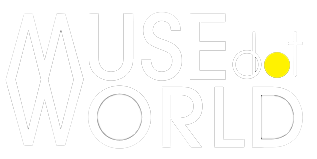1Please give us a brief bio of yourself and your design background.
I am a product leader and creative technologist who is best known for leveraging technology to design consumer-grade product experiences for the entertainment and education industries. My diverse portfolio of work spans more than a decade with several of my projects being awarded for innovation (CES) and design (iF, Red Dot).
As a product manager, I have led product development for some of the most innovative startups in the UK including ROLI & Kano – both of whom have featured on Apple keynotes and have seen my products end up in Apple stores globally.
2What made you become/why did you choose to become a designer/artist?
As a teenager I was obsessed with the storytelling of video games, film, and music. I would spend hours engrossed in these mediums, marveling at the ways in which they could transport me to different worlds and evoke powerful emotions. As I grew older, I began to realize that my passion for these art forms was rooted in something deeper: a fascination with the ways in which technology and storytelling could be fused together to create something truly magical.
This realization led me to pursue a career in product development and design, where I could explore these ideas further to create immersive, emotionally resonant experiences for others. I believe that great design is about more than just aesthetics or functionality; it's about crafting a narrative, creating a sense of wonder and excitement, and transporting people to new realms of possibility.
3Tell us more about your business/company, job profile, and what you do.
As the Chief Product Officer at Mindvalley, my role is critical in shaping and driving the overall product strategy for the company. We are a design-led business that focuses on creating transformative learning experiences through innovative products and services.
One of the unique aspects of Mindvalley is that our creative team sits within the product organization which means that designing is an integral part of the product development process. This approach ensures that every product is not only functional and effective but also aesthetically pleasing and emotionally engaging.
4What does “design” mean to you?
At its core, designing is about creating a meaningful and intuitive experience for the user. It's about solving problems, enhancing functionality and delighting the senses. For me, designing is not just about aesthetics or making things look pretty but it's about crafting a narrative and curating a journey through every aspect of the product.
5What’s your favorite kind of design and why?
Although our winning entry, Journey by Mindvalley, is an app concept, I have to admit that I've really enjoyed working on physical product design throughout my career. There's something magical about designing something physical and watching it come to life which you just can't beat once you've experienced it.
6To you, what makes a “good” design?
The key to a truly great design is that it becomes invisible to the user. This means that the design is so intuitive and seamless that users don't even notice it, as it effortlessly guides them through their interactions with the product or service. The design should be an enabler, not a barrier, to the user's goals, making it easier for them to accomplish what they set out to do.
7Describe your design style and its main characteristics.
I have to admit that my 'style' is very much influenced by my collaborators. Coming into design from a product and tech background, I see my role as a solution designer; which means my focus is on solving the problem rather than exercising any kind of personal style. Having said that, I definitely think you'll find an emphasis on usability and simple visualisation of complex functions or data in my design approach. Ultimately its about creating moments of delight through helping users achieve their goals.
8Tell us about your design process.
I like to design in high fidelity first. It might sound counter-intuitive when I've previously mentioned usability as a key characteristic, but I genuinely find it easier to refine a design after visualizing it in fine detail. There are pros and cons to this approach, of course, but it is a lot of fun for sure!
9Do you think your country and its cultural heritage has an impact on your design process?
I'm sure it has some influence but not as much as culture at large. Personally, I find a lot of influence and inspiration from entertainment because storytelling is the language of culture, and entertainment is all about storytelling. I think the stories we're exposed to have a lot to do with our environment but the world is growing ever-smaller and I find that each of our minds is a unique melting pot of cultural influences and popular culture.
10Congratulations! As the winner of the 2023 MUSE Design Awards, what does it mean to you and your company and team to receive this award distinction?
Winning this award reinforces our commitment to creating innovative and user-centered products and is a testament to the quality of our Product & Design teams. At Mindvalley, we believe that design culture is at the core of any great product, and this award is a reflection of our passion for delivering exceptional experiences to our users. The team is delighted to be recognized by MUSE, and we're determined to be back for more once Journey is live!
11Can you explain a bit about the winning work you entered into the 2023 MUSE Design Awards, and why you chose to enter this project?
Journey by Mindvalley is an app that combines activity, goals, motivations, and data from 6 different aspects of wellness into a single AI-powered guide to holistic wellness. It's the culmination of a decade of innovation in the personal growth and wellness space by Mindvalley, repackaged as a single, user-centric, consumer-grade digital platform.
Our intention was to create a truly world class experience that could be hold its own when compared to all the big consumer apps we use every day and there was no better way to stress test our work then to enter the MUSE Design Awards and compete with the hundreds of product design entries you receive every year.
12What was the biggest challenge with this project?
The variety of content on Mindvalley is pretty vast, as are the categories of personal growth that an individual can pursue. Stitching together content and learning paths from these fairly sparse categories into an intuitive UI that felt 'smart' was definitely the biggest challenge on this project.
13How has winning an Award developed your practice/career?
This is my 3rd MUSE Design Award, and I've personally been on teams that have won (and lost!) several other design and innovation awards. In my opinion, there is no better way of recalibrating my sense of quality than measuring my work against the best, whether I win or lose. Of course, winning any award definitely draws attention to designers individually and has certainly changed the trajectory of my career in ways I never imagined, and thats a good thing!
14What are your top three (3) favorite things about our industry?
1. Innovation - I love that good design is becoming widely regarded as a key ingredient to innovation.
2. Creativity - As a lifelong creative, I feel the design world is the only place I could've ended up. The opportunity and ability to create is something that I'm grateful for every day.
3. Community - The design world is amazing when it comes to the design community. Generally the industry is full of phenomenally talented people who just want to build amazing things and have fun. Impossible to hate that!
15What makes your country specifically, unique in the design industry?
The United Kingdom is a melting pot of cultures and a rich ocean of talent. How could it NOT be unique in the industry?
16Where do you see the evolution of design industry going over the next 5-10 years?
I think, inevitably, design will be a lot more influenced by AI and how people create with it as well as use it. Designers and the design industry are no different. AI will need to become at least a core tool in most industry organizations.
17If you were a student entering this industry or an aspiring MUSE Design Awards submitter, what advice would you give them?
Keep it simple! Sometimes it is tempting to create something with depth, but we can often go down a rabbit hole and forget what's important; the user's experience.
18What resources would you recommend to someone who wants to improve their skills in the design industry?
There are so many tools online that people could try, but I would suggest that there is no substitute for a good mentor.
19Tell us something you have never told anyone else.
I do not keep secrets!
20Who has inspired you in your life and why?
Most definitely, my mother. She's navigated some pretty steep peaks and troughs, and she's still here. How could one not be inspired by that?
21What is your key to success? Any parting words of wisdom?
I think persistence. There is no substitute for trying, failing, and trying again. You just have to be persistent, and ideally consistent too!




